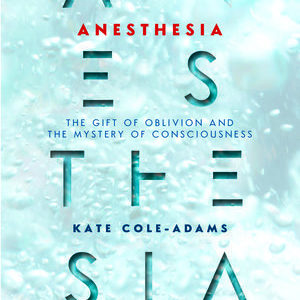An important report by the NSW Law Reform Commission that is relevant to many older people and people with a disability and their families in NSW was tabled in the NSW Parliament by the Attorney-General, Mark Speakman on 15 August 2018. It recommends a totally new approach to what is currently known as guardianship including a new, replacement law for the Guardianship Act 1987 (NSW).
This current law says who can make decisions for people if they can’t make decisions on their own. This can apply to many people including people with an intellectual disability or with dementia a brain injury or mental illness.
A whole new approach recommended
The Commission’s almost 400-page report makes hundreds of recommendations. The highlights of the Review are as follows.
- New formal supported decision-making arrangements should enable people to make their own decisions with the help of a supporter. This will ensure a wider range of decision-making options.
- Peoples’ will and preferences should prevail over someone else’s view of what is good for them, unless to do so would create an unacceptable risk of harm.
- The language of guardianship has to change, in order to remove the paternalistic overhang of that word, and to ensure that a genuine effort will now be made to ascertain a person’s will and preferences, and respect them wherever possible.
- The Commission does not want there to be formality in the future around these matters unless it is really needed. Informal support arrangements work well now in many cases, and should still work. The change will be that if informal support is not working, formal support can be utilised, rather than a substitute decision maker being the only alternative.
- Accountability and safeguard mechanisms should be applied consistently across different types of decision-making arrangements, and strengthened, where appropriate, to prevent abuse.
Move from substitute decision making to assisted decision making
The Review of the Guardianship Act 1987 (Report 145) recommends that legislation move away from substitute decision making to a regime of assisted decision making. Substitute decision making should be a last resort. The Commission says words like ‘guardian’ and ‘guardianship’ aren’t the right words to use anymore.
It says that the law should follow what’s in the United Nations Convention on the Rights of Persons with Disabilities to which Australia is a signatory.
Older people and people with disability should be able to make their own decisions so far as possible. When decisions are being made for people they should include that person, be what that person would want and be respectful of the person. The decisions should promote a person’s health and well-being allow them to take part in their community, protect their rights and keep them safe. There isn’t one way to help people make decisions. People should be able to choose their own supporter or representative to make decisions for them. The Guardianship Division of the NSW Civil and Administrative Tribunal should only make decisions for or choose people to make decisions for people, as a last resort.
A new law
A major recommendation is a new law called the Assisted Decision-Making Act, replacing the Guardianship Act and the enduring power of attorney provisions in the Powers of Attorney Act 2003 (NSW).
The new Act would cover decisions about personal matters, money, health and restrictive practices (such as physically or chemically restraining people) designed to stop people from hurting themselves, other people or damaging something. The Report calls for the new Act to define when someone has decision-making ability and how to work out if someone has decision-making ability.
A new Office of the Public Advocate
The Review also calls for the establishment of an Office of the Public Advocate to speak up for people who need support with decision-making. The Public Advocate should also have a role in helping people fix decision-making problems, giving people information, support and advice about decision-making and investigating abuse and neglect. The Public Advocate should work with the existing Public Guardian which would be renamed the Public Representative.
Other recommendations
Other recommendations cover changes to the present consent framework for medical and dental treatment to include care given by nurses and paramedics. The Report also says the Tribunal should only give consent to special types of treatment, or treatment a person says they do not want, if it will save that person’s life or stop them from getting very sick. And it should not be involved in oversight of consent to participating in a medical research project approved by a human research ethics committee. It proposes explicit recognition of advance care directives.
The Report recommends the new law makes clear that agreements and orders don’t need to be registered and that representatives who were given their powers in other states keep the same powers in NSW.
What are supported decision-making processes and what are the implications for them from the Review?
With supported decision-making, a newly named “supporter” has the job is to help a person get all the information they need as well as help them to make and communicate their decision. They are appointed by the Tribunal or under a support agreement to support someone else in making decisions.
There are two ways a decision could be made for someone else. An enduring representation agreement (replacing the current Enduring Guardianship and Enduring Power of Attorney arrangements) is where the person chooses someone to make decisions for them when they can’t. A representation order (currently known as a Guardianship Order) is where the Tribunal chooses a representative to make decisions for someone.
The term “enduring representative” should be used, when a person chooses their own representative instead of “enduring guardian” and “attorney” under a power of attorney.
The Report recommends that agreements and orders made under the old law be kept the same under the new law until they are reviewed. This means that Powers of Attorney and Enduring Guardianship will still be recognised although ‘will and preference’ is the paramount consideration rather than ‘best interest’. It also means it will be important for people, their families and advocates to undertake a review of existing agreements if the new law is adopted.
Need for change What happens now?
The NSW Government will now decide if it will make changes to the law. Given the current law was written 30 years ago there is need for change. The Act has long passed its use by date and is no longer fit for purpose. Community attitudes have changed, people with dementia are now the most likely to need help with decisions and the NDIS has changed things for people with a disability.
You can read the full report or an easy read summary here. Encourage your local State MP to take action to reform our guardianship system.




